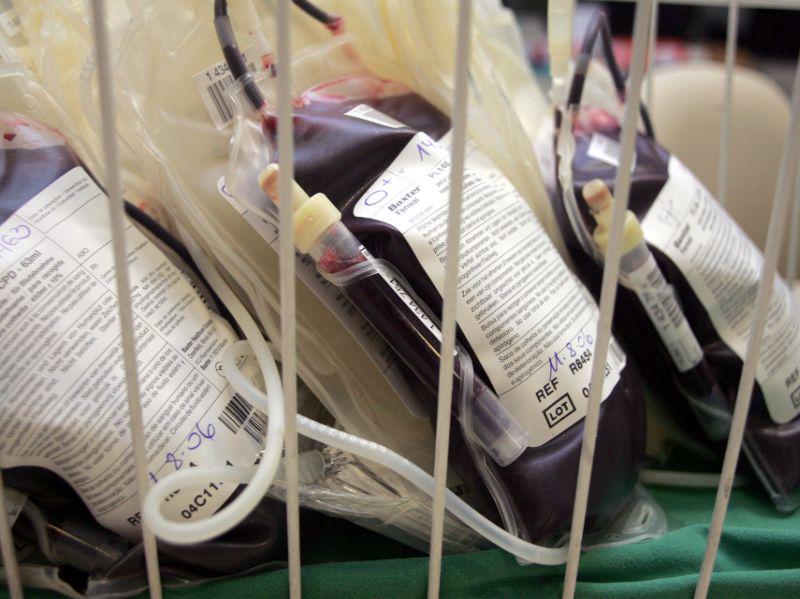According to Polonca Mali, the head of the Blood Transfusion Centre of Slovenia, the Slovenian Institute for Transfusion Medicine (ZTM) last week sent out mass SMS messages and made phone calls to blood donors urging them to participate in blood drives. She said that blood supplies in Slovenia are dangerously low. Three types – A positive, B positive, and B negative – have dropped below critical levels. Blood donors are encouraged to find a blood drive location.
"Due to seasonal travel, many donors are not as readily available as usual. But we still need blood because we do more organ transplants and because there are more accidents in the summer months," said Mali.
In Slovenia, blood can't be sold
Some people say: "I won't donate my blood because it will be resold." Is this merely a cheap excuse for people to feel better about themselves? Lately, rumours have spread that blood donated in Slovenia is often sold for profit. However, Mali stressed that blood donated in Slovenia is never sold and is only used to meet the country's healthcare needs. Moreover, Slovenia does not import any blood. "These rumours have been circulating for years, and we don't even know where these rumours have come from. We barely collect enough blood to meet our own needs," said Mali.
We asked Mali why some Slovenians prefer to donate blood in Austria where they get paid for their blood. She said that in Austria, people get paid for donating blood plasma. This process is called plasmapheresis, and the donors' plasma is used to make medications. Mali added that Slovenia has its own plasmapheresis program.
"In Slovenia, all blood donations are anonymous; moreover, blood donors receive no money. This is done to ensure the safety of both the donor and the recipient. We don't want to create false incentives. We don't want low-income and socially disadvantaged people to sell their body parts to make ends meet. And blood plasma definitely is a body part," said Mali, adding that this is a very complex problem. After all, people also donate blood plasma to help save other people's lives.
Slovenia needs 45 thousand litres of blood per year
Mali said that Slovenia needs 95 thousand units of blood per year to meet its healthcare needs. This translates into 45 thousand litres of blood per year or 300 to 400 blood donors per day.
Around five percent of Slovenians between the ages of 18 and 65 donate blood every year, and there are approximately 65 thousand blood donors in Slovenia. "We urge all those who believe in solidarity to donate blood. You never know when you may need blood yourself," said Mali.
Responding to the question of whether blood banks preferred 'universal donors', Mali said that recipients always receive a transfusion of the same blood type as their own. "It's true that those with type 0 negative are considered 'universal blood donors'. However, because this blood type is so rare, it must not be wasted," she said, adding that this universal blood type is used only to treat critically injured patients.
New blood donors welcome
All those who wish to become blood donors but are currently unable to donate blood – be it due to medical issues or lack of time – can sign up to become a blood donor here.
Stored blood expires after a while. Because blood shortages are difficult to predict, ZTM strives to create a large database of blood donors. Any person between the ages of 18 and 65 can donate blood if he or she weighs more than 50 kilograms and if his or her blood volume, which is calculated from one's weight and height, is at least 3.5 litres. A blood donor must be healthy and must not be anaemic. Men must have a haemoglobin level of at least 135 g/l, whereas women must have a haemoglobin level of at least 125 g/l. Men can donate blood every 3 months, whereas women can donate it every 4 months.
Gorazd Kosmač; translated by D.V.


































































